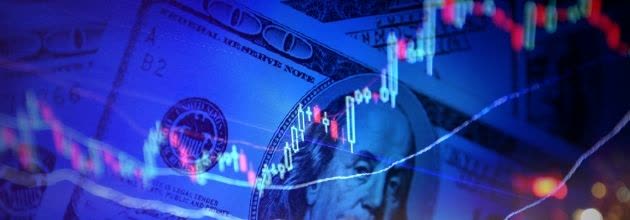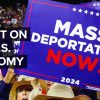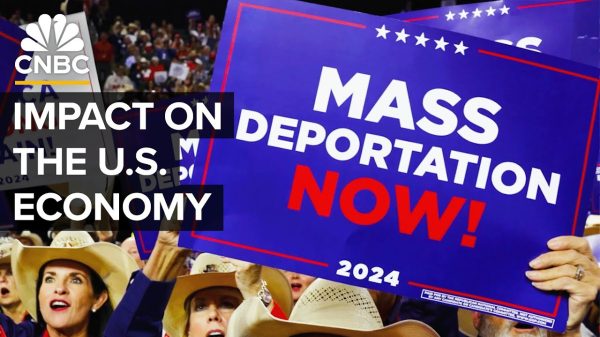Wall Street’s major averages closed out a strong first half of the year on an upbeat note Friday, powered by technology stocks as Apple achieved a historic $3 trillion market capitalization. Moreover, the Federal Reserve’s favorite inflation gauge – the core personal consumption expenditures index – moderated in May on both a month-to-month and year-to-year basis, easing some of the rate concerns that have weighed on markets recently. All 11 S&P sectors ended in positive territory for the day, led by the technology with close to a 2% gain. Notably, the S&P 500, Dow Jones and Nasdaq Composite indexes all notched gains for the week, month, quarter and first half of the year. For the week, the three benchmarks all gained about 2%. For June, the S&P and Nasdaq both added about 6.5%, and the Dow’s 4.6% gain was the best showing since November. For the second quarter, the S&P’s 8.3% jump was its best quarter since Q4 2021, while the Nasdaq surged nearly 13% and the Dow added 3.4%. Finally, for the first six months of 2023, the Nasdaq exploded 31.7% higher for its best first half since 1983, and the S&P soared 15.9% for its best first half since 2019, while the Dow added a more modest 3.8%. The second half of the trading year starts off with a holiday-shortened week. Seeking Alpha’s Catalyst Watch lists the key events for the week ahead.
Russian roulette
Investors started off the week digesting an aborted mutiny by Yevgeny Prigozhin and the Wagner Group, shaking expectations of what could come next in the Kremlin’s war in Ukraine. The bitter feud has been ongoing for months, with Prigozhin accusing the Kremlin of battlefield losses due to shortfalls in financing, weapons and even recruitment. Markets viewed the situation as a non-event though, but traders were on edge in case things morphed into something bigger – like a full-out coup, uprising or even a civil war. (205 comments)
Ending the drought
Things began to defrost for the IPO market after being frozen for much of the past 18 months. This week saw a string of IPOs, including Korean BBQ group GEN Restaurant (GENK), which hoped to replicate the recent success of Cava (CAVA), while four other listings priced and raised over $250M each. The largest was Vesta Real Estate (VTMX), but SA Investing Group Leader Donovan Jones is cautious about the company given the history of depreciation of the peso against the dollar. Other IPOs were Kodiak Gas Services (KGS), Savers Value Village (SVV) and Fidelis (FIHL). (5 comments)
The last mile
More policy tightening should be expected from the European Central Bank, Federal Reserve and Bank of England, according to statements made at the ECB’s annual retreat. Central bank heads of Europe, the U.S., U.K. and Japan met to discuss how to get inflation back to target amid a fragmenting global economy. “We still have ground to cover… we will very likely hike again in July,” said ECB President Christine Lagarde, while Fed Chair Jerome Powell said he wouldn’t take moving rates up at consecutive meetings off the table. The Bank for International Settlements also recently warned that the final stretch of monetary tightening will likely be the toughest. (20 comments)
Don’t stress
All 23 banks met minimum capital requirements under the Federal Reserve’s 2023 bank stress tests and would still be able to lend in a hypothetical “severe global recession.” The annual health checks dictate the required size of each bank’s “capital buffer” – an extra cushion of capital set aside on top of the regulatory minimum needed for daily business. “The bigger changes for banks are likely to come later, as the Fed contemplates new rules tied to Basel III Endgame and recent bank failures,” wrote SA analyst Stephen Simpson. “Capital requirement changes could meaningfully impact the profitability of regional banks,” like Fifth Third (FITB), Key (KEY), and others. (174 comments)
Game on, or game over?
Final arguments were presented in a closely watched case that could determine the fate of the biggest tech acquisition in U.S. history. The trial included testimony from Microsoft (MSFT) CEO Satya Nadella and Activision’s (ATVI) Bobby Kotick as they faced off against lawyers from the Federal Trade Commission. Simply put, the FTC believes that the $69B tie-up between the company behind Xbox and one of the best-known game developers would harm competition, but there are others who feel otherwise. “It was right at the end of the hearings that the judge reminded one of the FTC lawyers that it’s not the harm to Sony that she cares about; it’s any harm to consumers,” Chris DeMuth Jr., Investing Group Leader of Sifting the World, told Seeking Alpha. (29 comments)
Read the full article here













